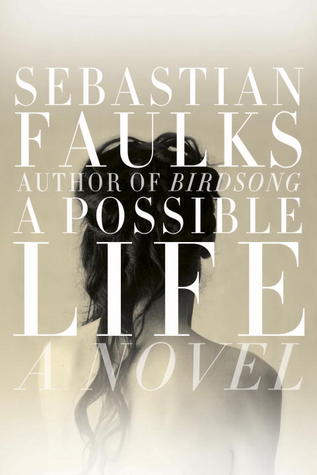A Possible Life, By Sebastian Faulks
In his latest book, Sebastian Faulks eschews the overarching form of the novel in favour of a series of poignant, gently resigned long short stories

Let's get the minor gripe out of the way at the start. This is not a novel. The publishers refer to it as such on the inside jacket, perhaps in an attempt to steer the reader away from the concept – apparently anathema to British publishers concerned with sales – of a collection of stories. Sebastian Faulks may well have conceived of it as a novel in his mind, as he has stated in recent interviews, but the truth is that A Possible Life is a gathering of five longish short stories, ranging from 40 pages to about 100, stories that span continents, centuries and subject matter, sometimes extremely skilfully, at other times less effectively.
Faulks does attempt to link his stories both through theme and occasionally character or inanimate object, but those threads are so thin that they don't carry the weight of the author's ambition in this regard. The very occasional cross-pollination of characters and objects just seems gimmicky and clunky, while the theme is so tenuous and vague (the old Buddhist idea of "the interconnectedness of all things") that it could be said to run through every story ever written about anyone at any time.
That said, this is probably Faulks's most intriguing fictional offering. It's not a happy book, not by a long chalk, and there is a vague air of resigned nihilism running throughout these stories – a melancholic observation about the randomness of life, the universe and everything – that readers more used to tied-up happy endings might find a little unpalatable. Personally, I found that approach very moving, especially in the two stand-out stories, more of which in a bit.
We begin with "A Different Man", in which Geoffrey Talbot, a reasonably affluent English teacher, signs up to serve in the Second World War. Initially treating the conflict as a bit of fun, poking around behind enemy lines and spying on old Jerry, he is captured and taken to a concentration camp in Poland where his eyes are well and truly opened to the horrors humanity is capable of.
The passages in the camp are some of the most effective in A Possible Life, and the shockwaves from that time reverberate throughout the remains of Geoffrey's life as he struggles to reconcile what he's seen with the everyday world around him.
In the next story, "The Second Sister", there is a similar theme of being exposed to the brutality of human nature, this time as Billy is thrown into a Victorian workhouse and struggles to survive. Pulling himself up by his bootstraps, he thrives and eventually makes a decent life for himself, but the course of true love doesn't run smooth when his wife has a stroke at an early age, and he finds himself in a complex relationship with her and her half-sister.
These two stories are engaging as far as they go, but we really get to the meat of Faulks's ideas with the best story here, "Everything Can Be Explained". Set in a near-future, post-crash Italy, we follow the life of Elena as she goes from loner child to acclaimed neuroscientist, discovering the physical processes in the synapses that lie behind the concept of consciousness. That discovery is a massive breakthrough, and seems to have untold implications for the nature of self and identity, implications that are only dimly beginning to be understood at the time, leading Elena to ponder her own existence deeply.
Which is also something that the main character in the other exceptional story, "You Next Time", does at length. Set in late-20th-century America, it centres on the reminiscences of Freddy, a musician, manager and former lover of Anya King, an acclaimed singer-songwriter.
The story of their life together is vividly evoked, from the rural farm that doubles as a kind of hippy commune to the hard-edged interactions with record companies and Los Angeles recording studios.
It is another poignant, gently resigned narrative and, in it, Faulks addresses his ideas explicitly through Freddy's voice: "We seem to be alive just once – in a random skin and bone that starts to move towards disintegration as soon as it's old enough that you can kiss it." Then later: "I was almost sixty years old, but I didn't understand anything. It all in the end seemed to have been a matter of the purest chance."
Interestingly, in this final story, Faulks also appears to poke fun at his own idea of the interconnectedness of his stories. When someone suggests a concept album to Anya, she takes umbrage: "That is a really, really terrible idea, man. Each song is a different world. You try and force them together, you diminish each one."
I would humbly suggest that A Possible Life be treated as a collection of individual songs rather than a concept album.
Join our commenting forum
Join thought-provoking conversations, follow other Independent readers and see their replies
Comments